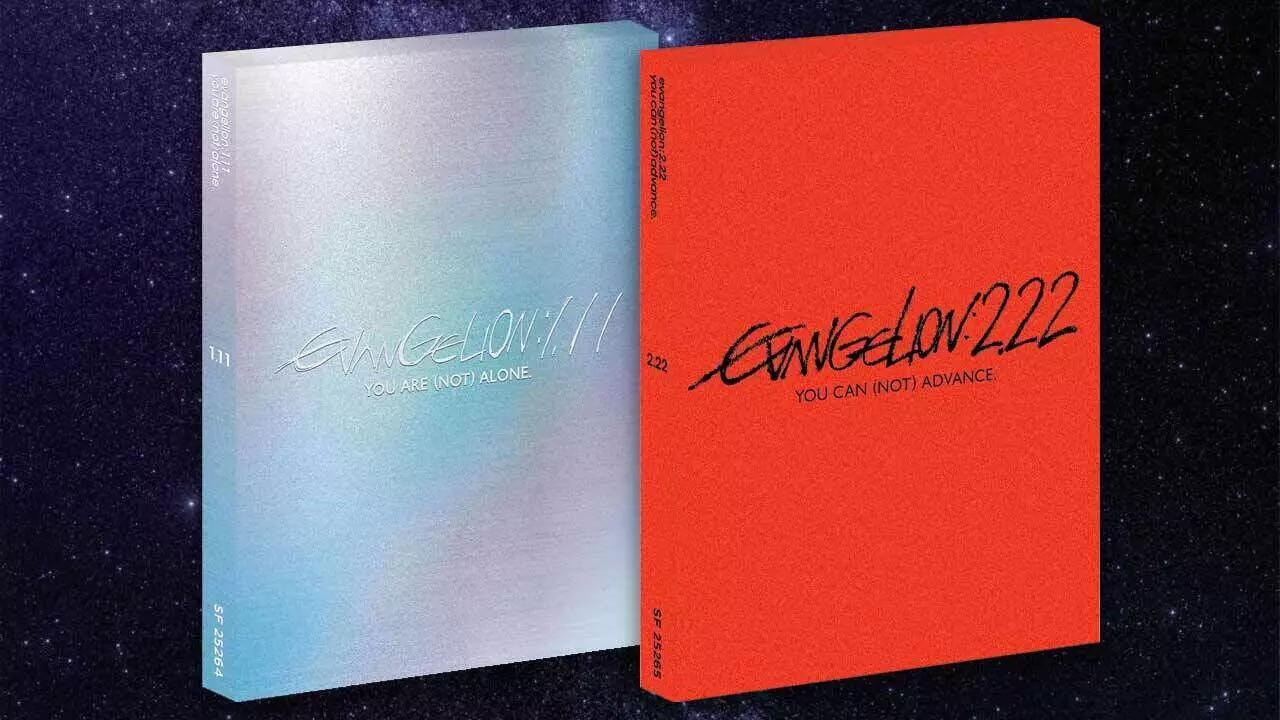The release of revamped Blu-ray editions for the initial two entries of the Rebuild of Evangelion series marks a significant milestone that transcends mere physical media updates. For decades, Neon Genesis Evangelion has stood as a towering pillar in anime history—an expansive universe filled with profound symbolism, psychological depth, and innovative storytelling. The recent restoration efforts breathe fresh life into this saga, reaffirming its relevance and captivating both die-hard fans and newcomers alike. These releases serve as more than just nostalgia; they are a testament to the enduring cultural resonance of Evangelion in an era obsessed with remakes and reboots.
The timing couldn’t be better. With the first two films—Evangelion: 1.11 You Are (Not) Alone and Evangelion: 2.22 You Can (Not) Advance—reappearing on store shelves, the opportunity arises to re-engage with this universe in stunning detail. Priced at a modest $30 each, they are accessible entries that promise to rekindle the passion that initially drew audiences into the complex world of giant mechs, existential dread, and philosophical musings. The rarity of out-of-print editions prior to this move has dulled the accessibility of Evangelion’s early cinematic chapters, making these new editions a vital step toward making the entire saga more approachable and comprehensive.
The Strategic Reintroduction of Classic and Contemporary Evangelion Titles
The initiative to reprint and remaster Evangelion films signals a strategic effort not just to preserve but to enhance the franchise’s legacy. The release of Evangelion 3.33 in a DVD format — despite the absence of a current Blu-ray or 4K release—exposes a broader issue regarding the media’s ongoing accessibility in the United States. Fans eager for the high-definition experience face hurdles, yet the limited availability of the 3.33 Blu-ray underscores a broader dilemma within the anime distribution landscape: how to balance quality preservation with logistical constraints.
Meanwhile, the final chapter in the series, Evangelion: 3.0+1.11, has already undergone a visual upgrade with a stylish Steelbook edition and a premium 4K Collector’s Edition. These versions are not mere upgrades but serve as collectibles that elevate the status of Evangelion beyond transient entertainment. They underscore this franchise’s position in the realm of cinematic artistry, appealing to collectors eager for visually stunning editions that also embed meaningful artifacts—art booklets, posters, art cards—within their packaging.
It’s notable how these reprints and special editions aren’t just about preservation—they’re about reinvention. Packaging in slipcases, including bonus art, and the inclusion of extra features like trailers, interviews, and remixes serve to deepen fans’ engagement with the material. It’s a carefully curated effort to elevate the physical experience and turn a simple movie purchase into a treasured keepsake.
Reborn in Remakes: Shifting Narratives and Character Dynamics
What truly distinguishes the Rebuild of Evangelion from its predecessor is not merely its updated animation but its bold reinterpretation of the original material. The first film, Evangelion 1.11, acts as a near-shot-for-shot remake of the first six episodes of the iconic ’90s series, yet subtle changes in animation and minor story modifications hint at a deeper narrative potential. These alterations foreshadow upcoming plot developments, transforming a nostalgic rehash into an intricate reimagining that invites viewers to re-analyze every scene.
The subsequent films go even further—taking liberties with the storylines and character arcs—culminating in the provocative entry, Evangelion 3.33, which ventures into entirely original territory. Set 14 years after the events of the original series, the film introduces fresh characters and environments that challenge viewers’ preconceptions. Perhaps most compelling is its focus on Kaworu and the expanded universe he inhabits. This recalibration demonstrates how Evangelion is not a static relic but a living, evolving franchise that redefines itself with each iteration.
This narrative flexibility reveals an important truth: Evangelion’s strength isn’t solely in its story but in its ability to continually adapt and question its own identity. The franchise’s willingness to stray from the original plotlines demonstrates an understanding that its legacy depends on growth and reinvention. The movies serve as a mirror reflecting societal changes, technological advances, and shifting philosophical inquiries—making each new installment a valuable piece of cultural dialogue.
The Future of Evangelion: A Franchise Reborn for New Generations
Despite the sustained popularity of Evangelion’s original series, the franchise has faced logistical hurdles, notably in distributing physical media in regions like the US. The limited release of Evangelion: 3.33 on Blu-ray exemplifies the ongoing struggle to maintain modern, high-quality options amidst market constraints. However, the release of the final film, Evangelion: 3.0+1.11, as a comprehensive collector’s edition, underscores a renewed commitment to celebrating its cinematic culmination.
The proliferation of these special editions—be it steelbooks, slipcases, or boxed sets—enables fans to see Evangelion not just as a series but as a finely curated artistic oeuvre. The inclusion of detailed booklets, collectible posters, and character cards transforms these editions into cherished artifacts, elevating the franchise from mere entertainment to treasured collectibles. This approach also reflects a broader cultural shift where physical media, especially limited editions, have become a means of ideological preservation—protecting and showcasing beloved stories for future generations.
Future prospects for Evangelion seem optimistic, with hints at potential reprints and new editions for the entire series and possibly more comprehensive physical releases. The franchise’s resilience suggests it will continue to thrive, transcending medium limitations and adapting to new formats like 4K, while still honoring its transformative origins. Evangelion’s narrative complexity, visual innovation, and philosophical depth ensure it remains relevant in a rapidly changing media landscape—proof that true classics can—and should—be reborn time and time again, captivating fresh audiences while satisfying longstanding fans.
In a world increasingly dominated by digital streaming, the tangible allure of these beautifully crafted physical editions speaks to a stubborn refusal to let go of the concrete, aesthetic experience that makes collecting special. Evangelion’s re-emergence onto physical media shelves is more than a podcast of nostalgia; it is a bold declaration of its timeless relevance, an open invitation for new viewers to discover its layered depths, and a testament to its unstoppable cultural influence.

